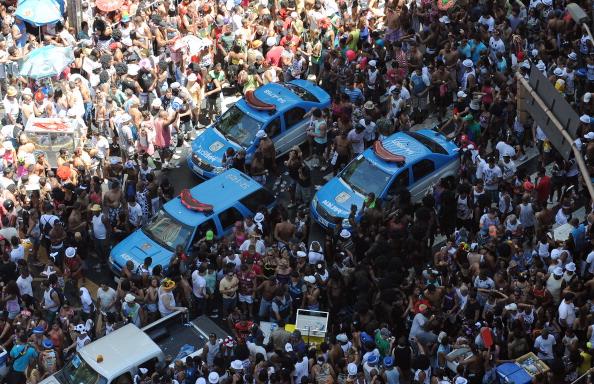RIO DE JANEIRO—Rio de Janeiro will get a peacekeeping task force similar to the Brazilian mission in Haiti. The announcement was made early on Thursday by the Brazilian Army commander, Gen. Enzo Peri, during an official visit to the operations area, said Agencia Brasil, a Brazilian government news agency.
Gen. Peri said plans are already underway for the peacekeeping task force, which is unprecedented in Brazil, and are expected to be deployed by the end of the month. So far, police control has been used in the operations, while the army participated in the siege and isolation activities with around 800 men.
Accompanying Gen. Peri was Gen. Adriano Pereira Junior, commander of the Eastern Military, who said the peacekeeping force comprises 8,000 men to guarantee law and order—or urban policing—and strengthen operations in other Rio slums.
The army troops are preparing to occupy the interior of the “favelas” or slums of the German Complex (Complexo do Alemão) and Cruzeiro Village (Vila Cruzeiro), replacing police who in turn will focus more on weapon and drug seizures.
According to Rio’s Secretariat of Security, the operations in northern Rio’s German Complex were planned two years ago. The delay was due to lack of manpower and logistics, now solved by the participation of the armed forces.
In a debate televised by Globo News on Friday, anthropologist and former national Security Secretary Luiz Eduardo Soares said the idea that the police are good and the drug traffic is bad “is unfortunately misleading” in Brazil, as the “drug traffic persisted thanks to the active and enterprising partnership with the corrupt segments within the police.”
The former secretary said the current situation, where security operations have gained popular support, is an opportunity for the virtuous part of the police to grow in strength. But for him, this will only happen if all citizens believe in recovery, professionalization, and reform of the police and public institutions, which should act in an integrated manner.
Sociologist and researcher at the Institute of Social and Political Studies at the University of Rio de Janeiro (UERJ), Gláucio Smith, who was also present at the debate, agrees and expressed concern about the risk of soldiers being “contaminated” by bad elements in the police. “It is very difficult to prevent corruption from entering the military, because soldiers are local, or live in the community.”





